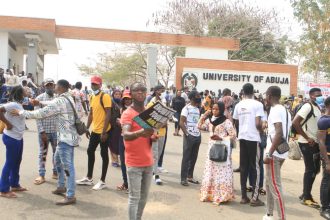Former Minister of Petroleum Diezani Alison-Madueke has sought to amend her lawsuit challenging the Economic and Financial Crimes Commission’s (EFCC’s) final forfeiture order on her seized assets. The case was heard before Justice Inyang Ekwo of the Federal High Court in Abuja.
Key Developments in Court
During the hearing, the EFCC failed to send a representative, prompting Justice Ekwo to inquire about the agency’s response to court processes. Alison-Madueke’s counsel confirmed that the EFCC had received the necessary documents and acknowledged service of a motion to amend their originating process.
Her legal team stated that the amendment was necessary to address procedural matters and challenge the EFCC’s handling of her confiscated assets. They also indicated that they had applied for an extension of time to allow her to formally request the annulment of a public notice issued by the EFCC about the sale of her assets.

Justice Ekwo scheduled the next hearing for February 17, 2025, to consider the motion for amendment.
Diezani Alison-Madueke’s Claims
The former minister’s suit argues that the EFCC failed to provide her with a fair hearing during the proceedings that led to the final forfeiture orders. She maintains that the sale of her assets, as advertised by the EFCC, was improper and should be invalidated.
She asserts that the proceedings and the subsequent public notice violated her rights to due process. Her legal filing also seeks to highlight what she describes as procedural errors in the EFCC’s case against her.
EFCC’s Response
In its defense, the EFCC refuted the claims made by Alison-Madueke, insisting that the forfeiture orders were legally obtained. The agency emphasized that the majority of the cases leading to the final forfeiture of her properties were adjudicated by competent courts at various times and in accordance with due process.
Diezani: Background
Diezani Alison-Madueke has been at the center of numerous corruption allegations during her tenure as Minister of Petroleum. Her confiscated assets, which include luxury properties and funds, have been subject to legal battles, with the EFCC pursuing forfeiture orders as part of its anti-corruption mandate.

Implications
The adjournment to February 2025 allows the court to consider whether to permit Alison-Madueke’s proposed amendments. The case raises important questions about due process and the rights of individuals facing asset forfeiture orders under Nigeria’s anti-corruption framework. Both parties are expected to present additional arguments at the next hearing.









